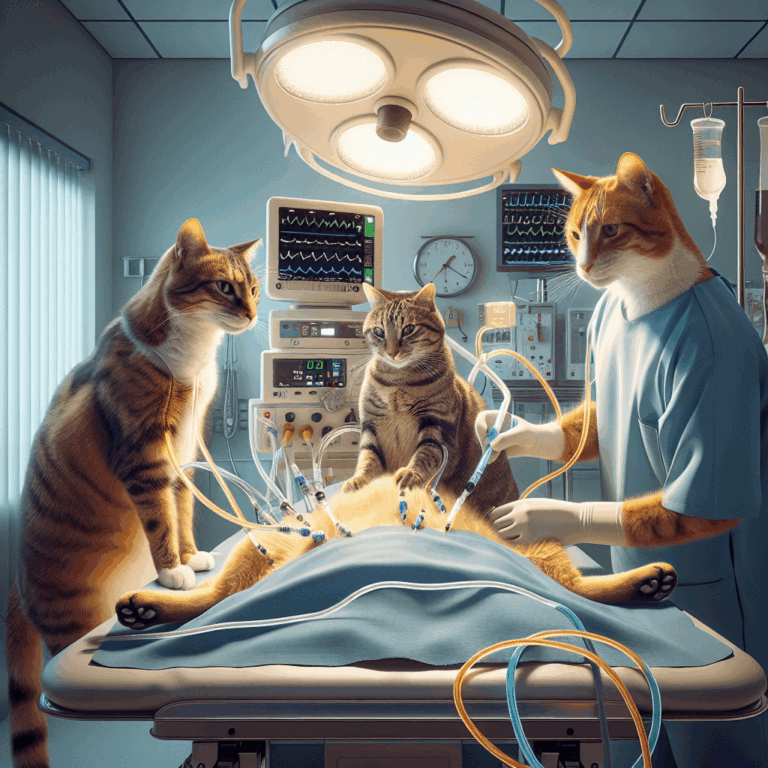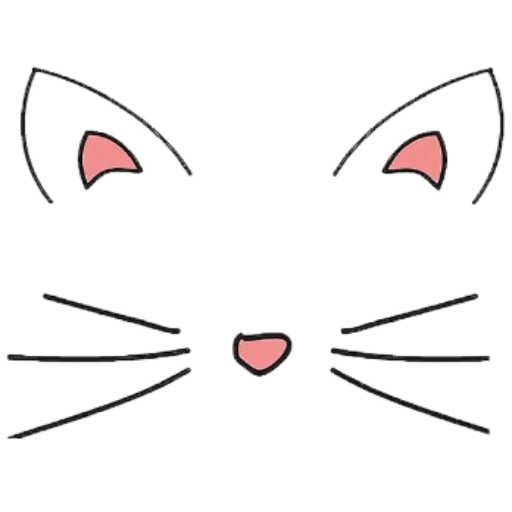The Feline Innovators of Medicine: Cats and Their Surprising Contributions to Healthcare Advances
- 16 Comments
In the ever-evolving world of healthcare, the role of felines is proving to be more profound than previously imagined. Cats, with their unique physiology and enigmatic behavior, have quietly influenced various aspects of medical research and treatment methodologies. As the scientific community delves deeper into the mysteries of feline biology, these beloved animals are inspiring breakthroughs that could transform the future of medicine.
One of the most intriguing contributions of cats to medical science lies in their genetic makeup. Researchers have long been fascinated by the feline genome, which shares remarkable similarities with human genes. This similarity offers invaluable insights into genetic diseases that affect both species. Studies on cats have contributed to understanding conditions such as polycystic kidney disease and hypertrophic cardiomyopathy, leading to potential new treatments and preventive measures for humans.
In the realm of neurology, cats have also been instrumental. Their complex brain structures and behaviors provide models for studying neural pathways and cognitive functions. Feline epilepsy, for instance, has been studied to gain a better understanding of seizure disorders in humans. Through these studies, scientists have been able to develop new anti-seizure medications and therapies that may one day be adapted for human use.
Furthermore, the study of feline immunodeficiency virus (FIV), which closely resembles human immunodeficiency virus (HIV), has opened new avenues for vaccine and treatment development. Cats’ natural ability to coexist with FIV without progressing to full-blown AIDS has intrigued researchers, spurring investigations that could lead to novel approaches in managing HIV in humans.
Beyond genetics and virology, the therapeutic potential of cats is being increasingly recognized in the field of mental health. The calming presence of a cat, coupled with their rhythmic purring, is known to reduce stress and anxiety in humans. This phenomenon has led to the integration of cats in animal-assisted therapy programs, where their soothing presence aids in the emotional and psychological healing of patients. Hospitals and care facilities are beginning to adopt feline companions as part of their therapeutic teams, recognizing their ability to enhance patient well-being and recovery.
Cats are also playing a pivotal role in the development of new surgical techniques. Their healing capabilities and rapid recovery from injuries are being studied to improve human surgical outcomes. Surgeons are learning from the resilience and adaptability of cats post-surgery, applying these findings to enhance recovery protocols and reduce complications in human patients.
Moreover, the study of feline pain management is shedding light on more effective ways to address chronic pain in humans. Cats’ unique response to pain relief medications is guiding researchers to develop new analgesics that are both effective and safe, potentially revolutionizing pain management for millions of sufferers worldwide.
While the contributions of cats to medical science may not always be visible, their impact is undeniable. As research continues to unravel the mysteries of feline biology, the potential for groundbreaking medical advancements grows. In the years to come, our understanding of health and disease will be enriched by these silent, yet significant, feline innovators. As we celebrate their contributions, it becomes clear that the bond between humans and cats is not just emotional but deeply scientific, with the potential to change the landscape of healthcare forever.

In the ever-evolving world of healthcare, the role of felines is proving to be more profound than previously imagined. Cats, with their unique physiology and enigmatic behavior, have quietly influenced various aspects of medical research and treatment methodologies. As the scientific community delves deeper into the mysteries of feline biology, these beloved animals are inspiring breakthroughs that could transform the future of medicine.
One of the most intriguing contributions of cats to medical science lies in their genetic makeup. Researchers have long been fascinated by the feline genome, which shares remarkable similarities with human genes. This similarity offers invaluable insights into genetic diseases that affect both species. Studies on cats have contributed to understanding conditions such as polycystic kidney disease and hypertrophic cardiomyopathy, leading to potential new treatments and preventive measures for humans.
In the realm of neurology, cats have also been instrumental. Their complex brain structures and behaviors provide models for studying neural pathways and cognitive functions. Feline epilepsy, for instance, has been studied to gain a better understanding of seizure disorders in humans. Through these studies, scientists have been able to develop new anti-seizure medications and therapies that may one day be adapted for human use.
Furthermore, the study of feline immunodeficiency virus (FIV), which closely resembles human immunodeficiency virus (HIV), has opened new avenues for vaccine and treatment development. Cats’ natural ability to coexist with FIV without progressing to full-blown AIDS has intrigued researchers, spurring investigations that could lead to novel approaches in managing HIV in humans.
Beyond genetics and virology, the therapeutic potential of cats is being increasingly recognized in the field of mental health. The calming presence of a cat, coupled with their rhythmic purring, is known to reduce stress and anxiety in humans. This phenomenon has led to the integration of cats in animal-assisted therapy programs, where their soothing presence aids in the emotional and psychological healing of patients. Hospitals and care facilities are beginning to adopt feline companions as part of their therapeutic teams, recognizing their ability to enhance patient well-being and recovery.
Cats are also playing a pivotal role in the development of new surgical techniques. Their healing capabilities and rapid recovery from injuries are being studied to improve human surgical outcomes. Surgeons are learning from the resilience and adaptability of cats post-surgery, applying these findings to enhance recovery protocols and reduce complications in human patients.
Moreover, the study of feline pain management is shedding light on more effective ways to address chronic pain in humans. Cats’ unique response to pain relief medications is guiding researchers to develop new analgesics that are both effective and safe, potentially revolutionizing pain management for millions of sufferers worldwide.
While the contributions of cats to medical science may not always be visible, their impact is undeniable. As research continues to unravel the mysteries of feline biology, the potential for groundbreaking medical advancements grows. In the years to come, our understanding of health and disease will be enriched by these silent, yet significant, feline innovators. As we celebrate their contributions, it becomes clear that the bond between humans and cats is not just emotional but deeply scientific, with the potential to change the landscape of healthcare forever.



16 thoughts on “The Feline Innovators of Medicine: Cats and Their Surprising Contributions to Healthcare Advances”
It’s fascinating to see the unique role cats play in advancing healthcare and medical research!
It’s fascinating to learn about the unique contributions cats are making to advancements in healthcare!
This article wonderfully highlights the remarkable ways cats are contributing to advancements in healthcare.
Pingback: how to buy rifaximin cheap wholesale
Pingback: how to buy xifaxan cost of tablet
Pingback: cheap avodart generic version
Pingback: discount staxyn lowest price
Pingback: get itraconazole generic is good
Pingback: ordering fildena generic buy online
Pingback: cheapest buy gabapentin generic real
Pingback: ordering dutasteride cheap australia
Pingback: purchase flexeril cyclobenzaprine generic buy online
Pingback: cheap androxal buy in australia
Pingback: medicament kamagra pharmacie achat bien
Pingback: online order enclomiphene australia suppliers
This insightful piece highlights the remarkable ways cats are contributing to advancements in healthcare research and therapies.